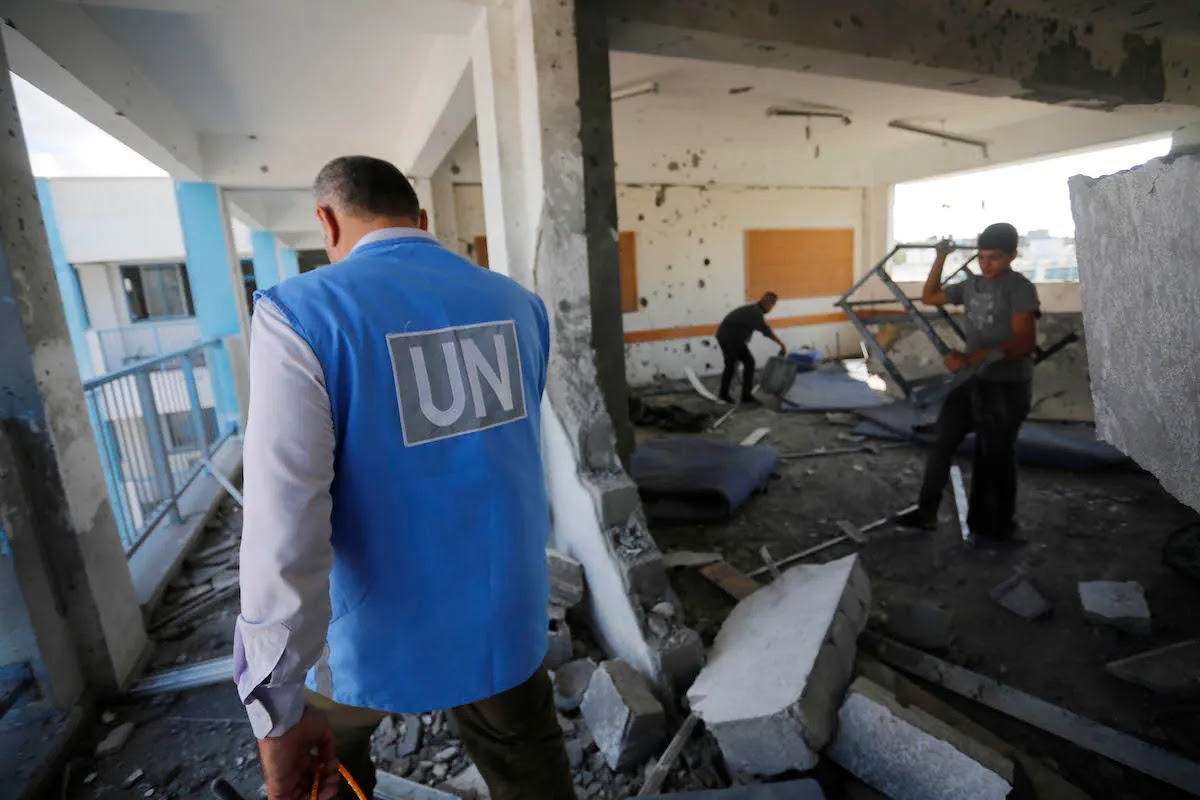Tragedy Strikes: Israeli Airstrike on UNRWA School Results in Multiple Casualties
A devastating event
occurred as an Israeli airstrike targeted the UN-run al-Fakhoura school located
in the Jabalia refugee camp on November 4th. The strike caused a heartbreaking
loss of life, including children, and left many others with injuries. This tragic
incident has prompted urgent calls for international attention and a
reassessment of the safety measures for civilians in conflict zones.
The Deadly Impact
The communications
director at the UN agency for Palestine refugees (UNRWA), Juliette Touma,
confirmed to BBC the appalling outcome of the strike: at least 20 individuals
lost their lives, and numerous others suffered injuries. The Palestinian
Ministry of Health in Gaza reported similar figures, with 15 people confirmed
dead and 70 injured as a result of the same incident.
The Strike Details
According to Touma's
statement to Reuters, the strike not only hit the schoolyard, which was housing
tents for displaced families but also struck the interior of the school where
women were engaged in daily activities like baking bread. These details highlight
the dire situation for civilians who are facing the horrors of the conflict,
even in places that should be safe havens.
The Israeli Military's Silence
At the time this
article was crafted, there had been no official communication from the Israeli
army regarding the airstrike on the al-Fakhoura school. The absence of a
statement does not diminish the gravity of the situation and the international
community's need for answers and accountability.
A Pattern of Despair
This strike was not an
isolated incident. Just a day prior, on November 3rd, an Israeli airstrike had
hit another UNRWA school, the Osama Bin Zaid School, leading to 20 fatalities
and over 30 injuries. This attack occurred a mere five hours after airstrikes
had battered the al-Shifa Hospital, a critical healthcare facility in Gaza.
The Consequences of Conflict
The attacks on UNRWA
schools are indicative of the broader peril that innocent civilians, especially
children, face in the midst of military operations. These incidents also raise
serious concerns about the respect for and protection of humanitarian spaces in
wartime.
The Call for Action
In the wake of such
tragedies, there is a loud call for immediate action. The international
community is urged to reevaluate the current approaches to protecting civilians
and to ensure that entities such as schools and hospitals remain safe zones,
free from the threat of military action.
A History of Violence
These events are part
of a long history of violence in the region, where civilian structures have
often been caught in the crossfire. The repeated strikes on educational
facilities and healthcare institutions are a stark reminder of the conflict's
brutal reality and the urgent need for peaceful resolutions.
The Humanitarian Perspective
From a humanitarian
standpoint, the loss of life and the cycle of violence are unacceptable.
Organizations worldwide are pleading for the cessation of attacks on civilian
infrastructures and for the provision of immediate aid to those affected by the
strikes.
The Impact on Education
The attack on the
al-Fakhoura school has a profound impact beyond the immediate loss of life. It
disrupts the education of countless children, further destabilizing a community
already burdened by conflict and loss. The psychological and developmental consequences
for the young survivors of such attacks are immense and long-lasting.
The Importance of Safe Spaces
UNRWA schools are
considered sanctuaries for learning and development. These attacks compromise
the very essence of what these schools represent, creating an atmosphere of
fear and insecurity that hampers the agency's mission to provide education and
support to Palestinian refugees.
International Law and Warfare
The strikes raise
critical questions about the adherence to international laws governing warfare,
particularly the principles of distinction and proportionality. The targeting
of schools, which are typically considered civilian objects, could constitute a
violation of international humanitarian law.
The Global Reaction
The international
response to the airstrikes on schools in Gaza has varied, with some countries
and organizations condemning the actions and others calling for a thorough
investigation. The global reaction underscores the need for a unified stance
against the violation of humanitarian principles in conflict zones.
Finally, Seeking a Path to Peace
As the dust settles on
the ruins of the al-Fakhoura school, the global community is left to
contemplate the path forward. The repeated loss of innocent lives, especially
children, is a somber reminder of the critical need for peace and the
protection of civilians in all conflict situations. The strikes are not just a
regional issue but a global one, calling for concerted efforts to ensure such
tragedies do not recur and that the sanctity of educational and humanitarian
spaces is upheld. The future of the affected communities and the very
foundations of international humanitarian law depend on the actions taken today
to prevent further loss and to pave the way for lasting peace.



